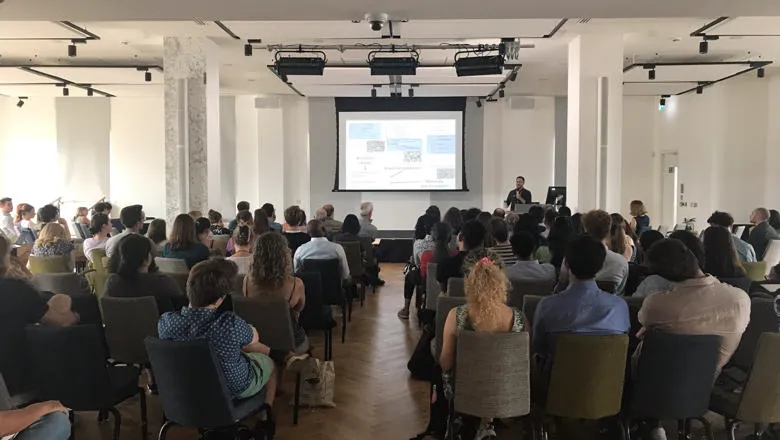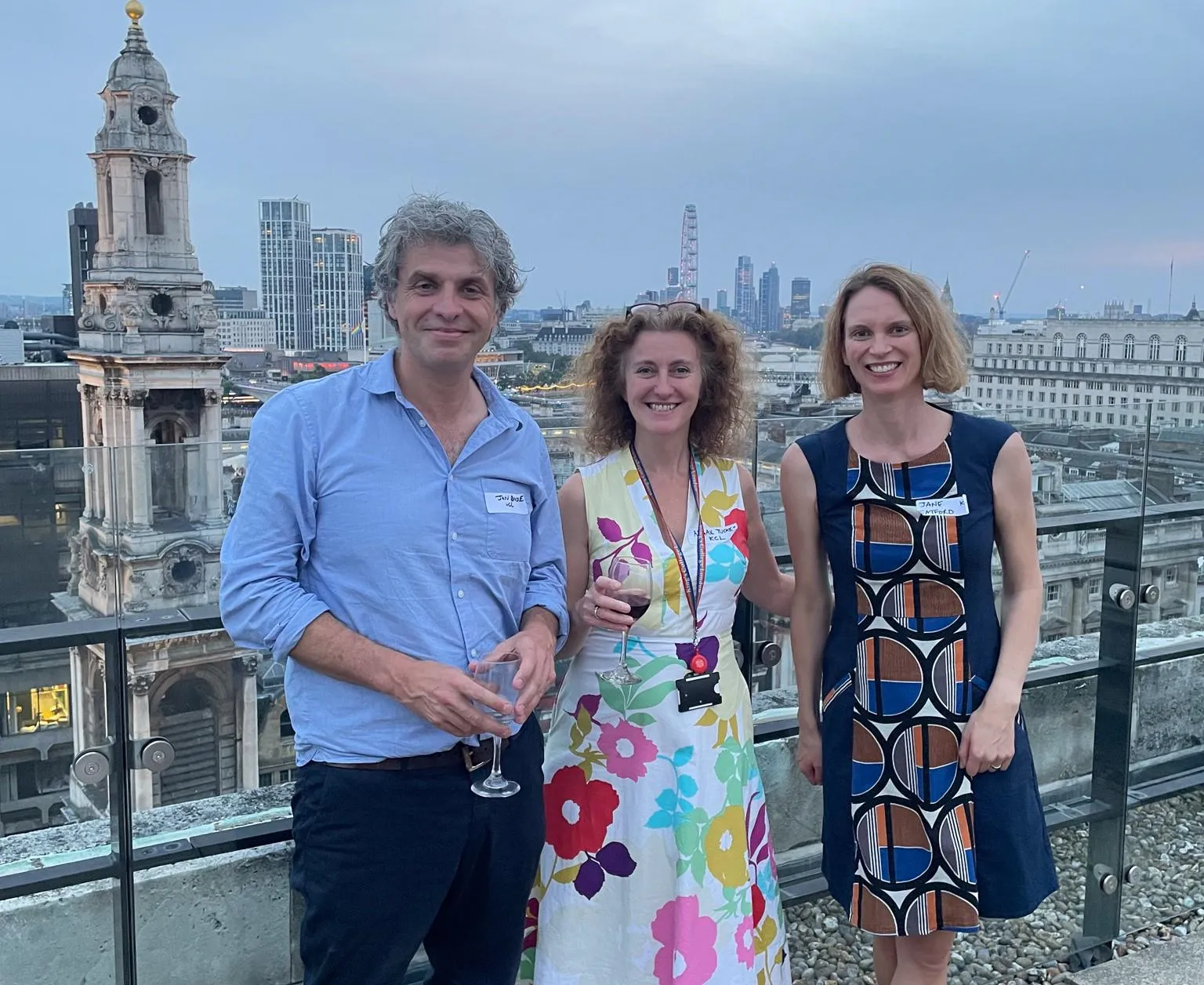The symposium was an opportunity for ecologists and evolutionary biologists from across London to share their research on the topic 'Climate change and biodiversity.

King's academics, Professor Abigail Tucker (Centre for Craniofacial & Regenerative Biology) and Professor Jane Catford (Department of Geography), hosted the London Centre for Ecology & Evolution (CEE) Autumn symposium on 8 September. The symposium encompassed 20 speakers from 10 institutions, and began with opening talks from the Centre's directors, Dr Aida Andres and Professor Jon Bridle (University College London), who introduced the unique nature of this year's talks focusing upon the central theme - 'Climate change and biodiversity'.
Biodiversity was discussed as vital for the integrity of ecosystems, providing buffering from climate change, while changing biodiversity provides a measure of climate change impact.
Speakers outlined how ecology and evolutionary biology provide important platforms to measure, evaluate, and understand biodiversity, creating predictive models of the impact of climate change, providing solutions to curb impact, and revealing the mechanisms by which organisms adapt to environmental change.
The symposium was an opportunity for ecologists and evolutionary biologists from across London to share their research on this important topic.
It was a fascinating day, highlighting the transformative science performed across London in the area of biodiversity and climate change, and how the latest technologies are enhancing monitoring and classification. A great way to celebrate King's College London joining the CEE and our commitment to climate and sustainability.
Professor Abigail Tucker, Centre for Craniofacial & Regenerative Biology
Professor Frans Berkhout, Assistant Principal (King's Climate & Sustainability), highlighted the importance of research and development in the field. He outlined the university's core interests in finding solutions in response to the climate and biodiversity crises, as well as working toward just and fair transitions to sustainability.
Talks included: Biodiversity challenges and opportunities using case study examples including rewilding, coastal ecosystems of Brazil and global insect biodiversity; climate change impacts on zoonotic diseases; and how thermal biology help predict biodiversity responses to global change. The Royal Society also discussed their open science journals and transparent peer review process for researchers in the field.
One to the best things about CEE events is the opportunity to meet and engage with scientists from a broad range of career stages, backgrounds and institutions. The programme was wonderfully diverse and was delivered by researchers spanning master's students to senior professors.
Professor Jane Catford, Department of Geography

About the Centre for Ecology & Evolution
The Centre for Ecology & Evolution is a network of scientists that aims to foster collaborations between researchers working in evolution and ecology. They run a series of events hosted at partner institutions across London. These events include Darwin's Birthday Party Debate, Huxley Memorial Lecture, Wallmas and two annual symposia on specific topics in evolution and ecology.
The centre is run by a cross-institutional steering committee including: King's College London, University College London, the Institute of Zoology (Zoological Society of London), Natural History Museum, Imperial College London, Queen Mary University of London, Royal Holloway University of London, the Royal Veterinary College, the Royal Botanical Gardens-Kew, and the London School of Hygiene and Tropical Medicine.









